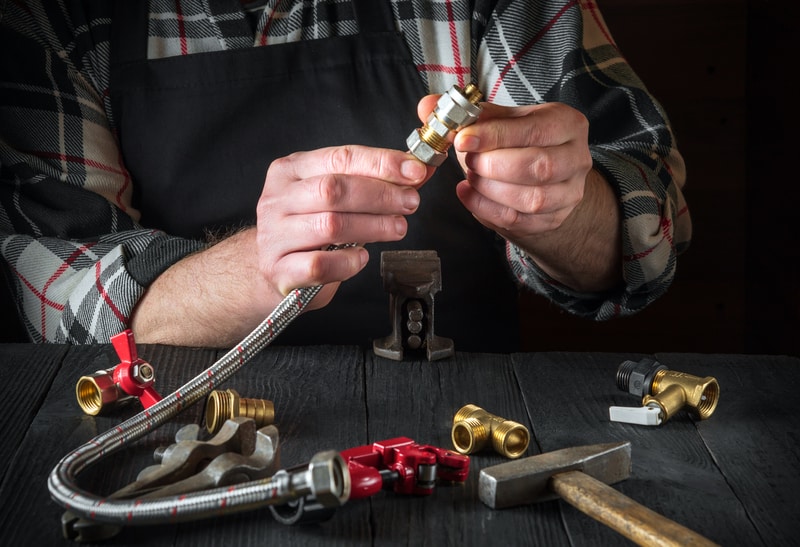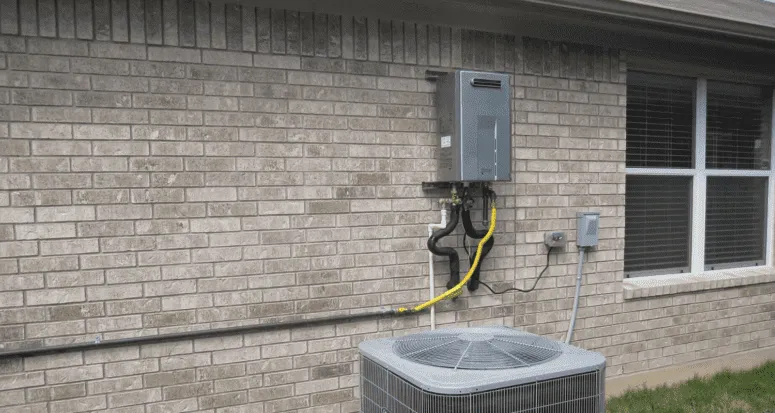Gas line installation ensures safe and efficient operation of appliances like stoves and heaters. For a safe setup, hire a licensed professional, choose the right pipe size, and maintain proper gas pressure. Regular inspections and carbon monoxide detectors are essential for long-term safety.
Gas line installation plays a vital role in keeping your home safe and efficient. Whether it’s for heating, cooking, or water heating, understanding the essentials of gas line installation ensures your appliances work flawlessly while minimizing safety risks. Learn more about professional plumbing solutions.
Why Gas Line Installation is Important
Gas-powered systems are highly efficient, but only when installed correctly. Faulty gas lines can lead to hazards like leaks, higher energy bills, or even dangerous explosions. That’s why proper installation by a licensed professional is crucial. Explore emergency plumbing tips.
Essential Factors to Consider
Location Planning
Choosing the right location for your gas lines ensures both safety and functionality.
- Gas lines should be away from doors, windows, and vents.
- Follow local building codes and guidelines to avoid hazards.
- Consult with a professional to map the best route for piping.
Discover how plumbing systems are maintained year-round.
Sizing the Pipes
Using the right size pipe is non-negotiable. Incorrect sizing can:
- Create low-pressure issues that impact appliance performance.
- Lead to unburned fuel or soot buildup, which increases fire risks.
Always determine the pipe size based on the BTU requirements of your appliances. Find expert installation services here.
Maintaining Proper Gas Pressure
Gas pressure must be consistent to ensure smooth operation of appliances. If the pressure is too low, appliances won’t function efficiently. Conversely, high pressure can damage equipment and increase the risk of leaks. Consult with your installer to calculate the correct pressure for your setup. Learn about energy-efficient heating systems.
Steps for a Safe Gas Line Installation
- Site Preparation
- Ensure your home is at the “lock-up” stage—doors, windows, and roofing installed.
- Clear the installation site of debris or obstacles.
- Calculate Gas Load
- Determine the total BTU requirement based on the appliances you’ll connect.
- Account for future upgrades to avoid reinstallation costs later.
- Mark Meter Location
- Identify a spot that’s accessible but out of the way of high-traffic areas.
- Ensure it complies with safety guidelines, such as maintaining clearances from vents and windows.
Looking for guidance on heating installation?
Residential vs. Commercial Installations
Residential Installations
- Focused on single-family homes or apartments.
- Typically involves shorter pipe lengths.
- Designed for appliances like stoves, heaters, and fireplaces.
Commercial Installations
- Larger-scale installations for businesses or multifamily units.
- Higher BTU requirements and longer pipelines.
- Stricter compliance with building codes and permits.
Learn more about our commercial gas line services here.
Common Issues Homeowners Face
Gas Leaks
Leaks are often identified by a sulfur-like smell. If you notice this, leave the area immediately and call a professional.
Corrosion
Exposure to moisture can cause pipe corrosion, leading to potential leaks. Regular inspections help prevent this issue.
Low Pressure
Low pressure can occur when pipes are incorrectly sized or when appliances exceed capacity. Consult an expert to assess and resolve the issue.
Read about common plumbing issues in older homes.
Safety Tips for Homeowners
- Install carbon monoxide detectors near gas appliances and replace them every five years.
- Schedule annual inspections to identify early signs of wear or leaks.
- Keep meters and lines clear of snow, debris, or other obstructions.
Discover tips for preventing winter plumbing problems.
How to Choose the Right Professional
Hiring a licensed plumber is essential. Verify their credentials and ensure they follow standards like CAN/CSA Z662. A qualified professional will ensure:
- Proper pipe sizing and installation.
- Compliance with local safety codes.
- A long-lasting, efficient gas system.
Schedule an appointment for professional assistance.
Call to action
Ready to install or upgrade your gas lines? Call us at TEL: Phone Number for professional and reliable service.



